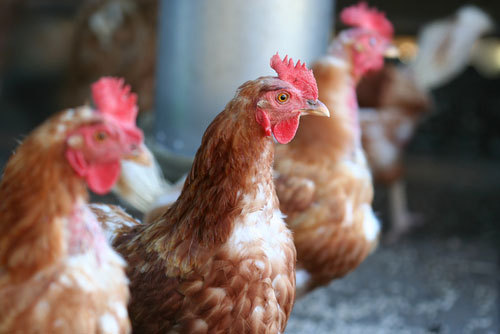Bird Flu Cases Declining, Health Officials Say

The number of new cases of the H7N9 bird flu is dropping, health officials said today (May 10).
While the outbreak is still ongoing, new cases are being reported less frequently in May than in April, the Centers for Disease Control and Prevention said.
As of May 8, there were 131 total cases of H7N9 bird flu, and 32 of these patients have died.
In the first week of April, 21 new cases of the illness were reported in total, with multiple cases reported each day in that week. In contrast, health officials were notified of just four additional cases between May 2 and May 7. The World Health Organization is now releasing updates about new H7N9 cases just once a week, instead of daily.
The reason for the drop-off is not clear. It could be due in part to efforts to reduce exposure to the virus throughclosing live bird markets, the CDC said.
But it could also be the result of the changing seasons. Just like human influenza viruses, bird flu viruses follow seasonal patterns as well — for instance, the bird flu virus H5N1 is known to be more active in the winter than the summer. The pattern of H7N9 remains to be seen, but it's possible that cases may pick up in colder months, the CDC said.
Right now, there are no reports of sustained human-to-human transmission of the virus.
Sign up for the Live Science daily newsletter now
Get the world’s most fascinating discoveries delivered straight to your inbox.
No cases of H7N9 have been seen in the United States, and currently, the risk to people living in the U.S. is low, the CDC said. Even if a case of H7N9 is reported in the United States, it would not necessarily raise the public's risk. (The risk would rise if the transmission pattern of the virus changes — for instance, if it begins to spread between people, the CDC said.) If a person in the United States is found to have H7N9, he or she would be isolated, and people that the patient came into contact with would be tested for illness.
The CDC is in the process of developing a H7N9 flu vaccine in case it's needed. It typically takes six months to produce large quantities of flu vaccine, but health officials have not decided yet whether to mass-produce the H7N9 vaccine.
Follow Rachael Rettner @RachaelRettner. Follow MyHealthNewsDaily @MyHealth_MHND, Facebook & Google+. Originally published on Live Science.

Rachael is a Live Science contributor, and was a former channel editor and senior writer for Live Science between 2010 and 2022. She has a master's degree in journalism from New York University's Science, Health and Environmental Reporting Program. She also holds a B.S. in molecular biology and an M.S. in biology from the University of California, San Diego. Her work has appeared in Scienceline, The Washington Post and Scientific American.









